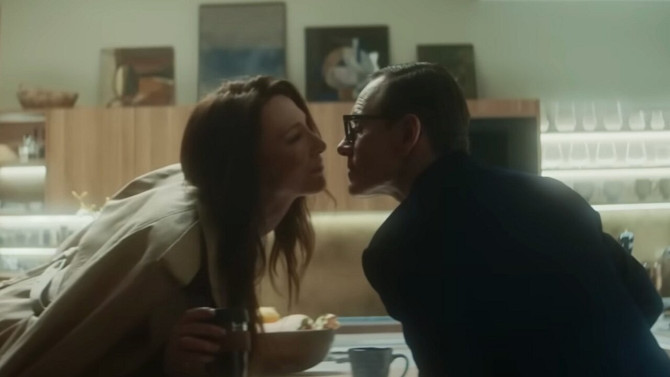
An Attaché Case
In 2025, dare I say that it’s nice to be highlighting a film made for mature audiences. Avoiding the pratfalls of sequels, remakes, comic book movies, and overly costly bombast, Black Bag, written by David Koepp (Mission: Impossible) and directed by Steven Soderbergh (Traffic), is most easily described as an old school spycraft feature. Opening with an extended tracking shot of spy George Woodhouse (Michael Fassbender) making his way through a happening nightclub in London, his contact soon informs him that there is a rat leaking some sort of tech software named Severus from within the agency. If there is one thing Woodhouse despises, it’s a liar, so he invites all of the suspects to a dinner party to try to get to the bottom of it.
-
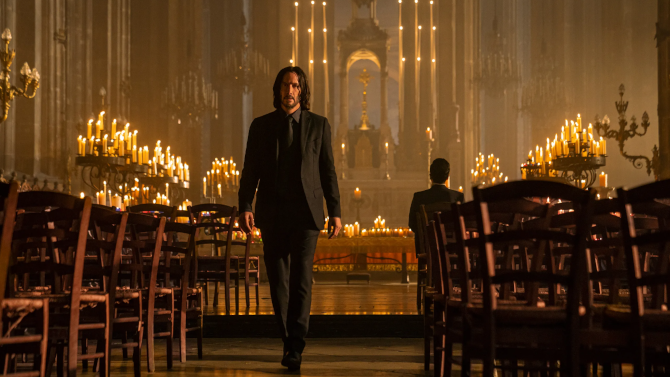
Candle Wick in the Wind
John Wick: Chapter 4April 9, 2023Covering some new and old ground in the longest feature of the franchise (coming in at a whopping two hours and forty-nine minutes), John Wick: Chapter 4, directed by Chad Stahelski (who has helmed each of the four films), starts us off pretty much right after the previous picture. Flipping the script a bit from the last one, Wick (Keanu Reeves), now healed (boy, does he do that quickly – though it’s supposed to be a couple months later), must deal with the claustrophobic landscape that has enveloped him due to his unsatiated revenge-filled drive. Walking the perilous path of dealing with hitmen, as well as friends and enemies (who can often switch allegiances on a dime), the memorable faces of the underground web weaver – the Bowery King (Laurence Fishburne), New York powerhouse – Winston (Ian McShane), his trusty concierge – Charon (Lance Reddick, who sadly passed away on March 17th), and the head of the table – Elder (George Georgiou), will all make appearances again... though perhaps not in the ways we might expect.
-
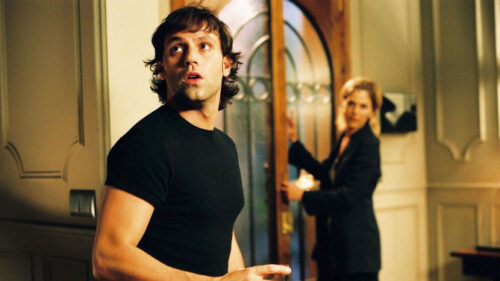
Guestwork
The Uninvited GuestOctober 15, 2022Reveling in the motifs of Edgar Allan Poe, think madness/insanity, a haunting location, the double, the uncanny, and maybe even death, Guillem Morales (Julia’s Eyes) explores the recesses of the mind in his directorial debut (he also writes the screenplay), The Uninvited Guest (2004). Who knew a four-thousand square foot home could be so claustrophobic. Félix (Andoni Gracia) finds himself alone in the weeks following the break-up from his longtime wife, Vera (Mónica López). With her having moved into a tiny three-hundred and fifty square foot apartment, it baffles Félix’s mind... unable to comprehend how anyone could downsize so drastically.
-
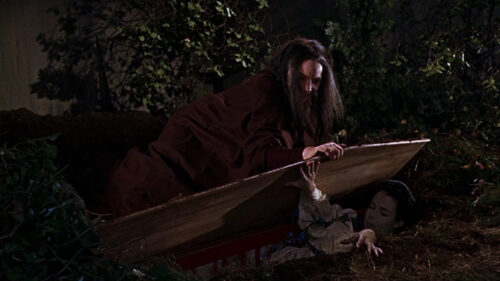
Unblushing Brides
The Brides of DraculaOctober 2, 2022Sometimes, a movie title can be misleading. Imagine heading to the theatre in 1960, excited to see Terence Fisher’s Hammer horror film The Brides of Dracula, only for the opening voice-over to exclaim, just a couple of seconds in, that Dracula is dead – that might be a bit of a letdown. But don’t worry, a new vampire will rise to start his own harem. I know what you must be thinking... did he immigrate to Europe from Utah? No, he’s one of those unusual, ultra kinky Europeans, but more on that later.
-
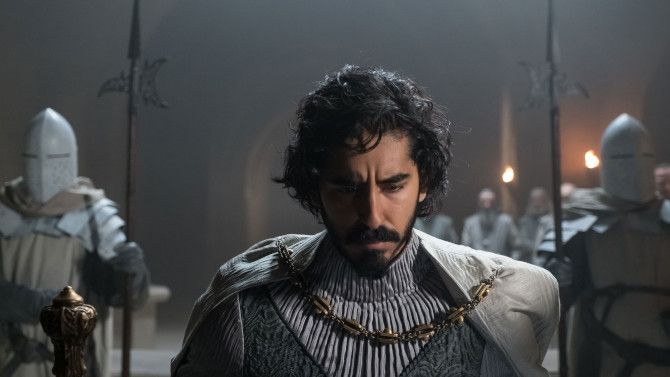
Fly By Knight
The Green KnightJanuary 10, 2022Fabled reverberations of distant past, a time when magic still filled the air... and men would quest to prove their knightly virtues, are brought to vivid life in writer/director David Lowery’s 2021 Arthurian era legend, The Green Knight. Almost ethereal in its nature – not due to some sort of fragility, but rather because it feels as if it is transcendent of this time... a wisp of lore echoing from distant past that ought be lost at the merest blink of an eye, it is akin to being transported back into a magic-tinged Medieval landscape. Lowery deserves much credit for brewing such a mythical auratic atmosphere. It is no easy feat being an Arthurian laureate, for you must know the earliest records dating back to Geoffrey of Monmouth in the twelfth century, through the long annals...
-
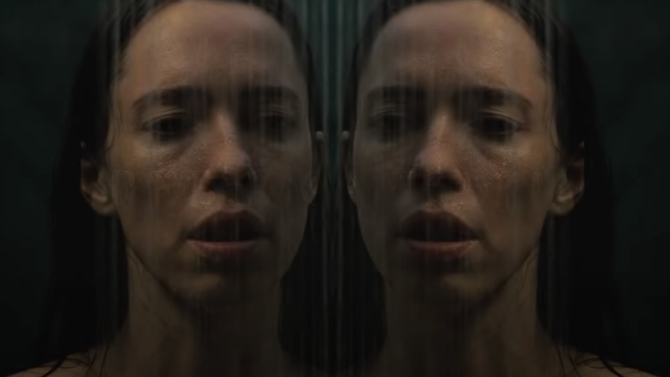
Home Is Where the Dark Is
The Night HouseOctober 27, 2021Almost as if Sigmund Freud, Edgar Allan Poe and Alfred Hitchcock got together to make a movie (Roman Polanski could probably be thrown into the group for good measure), 2020's The Night House lives in the realm of the double, the uncanny, as well as the horror found in grief and the chasm of nothingness it can bring with it. Written by Ben Collins and Luke Piotrowski, and directed by David Bruckner, the story follows teacher Beth (Rebecca Hall), the audience joining her immediately after the suicide of her husband, Owen (Evan Jonigkeit). Living in a bluff-top lake house that he himself built (the reflective water perhaps the first indication of the double), she might as well be out at sea. . . though she might not want that, as Owen killed himself on the water. And, when the darkness of night comes, Beth’s world feels like an encased glass tomb.
-
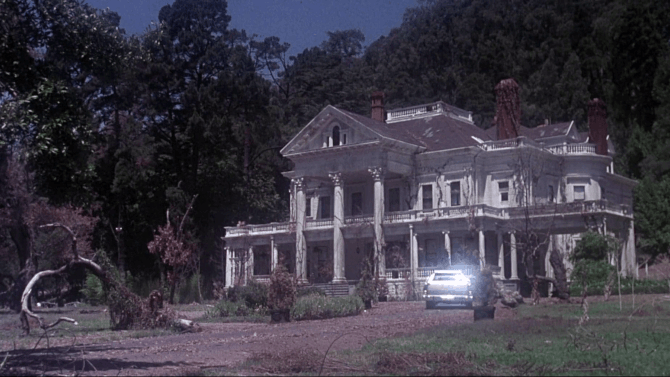
Extreme Makeover: Haunted Home Edition
Burnt OfferingsAugust 10, 2021Ah, the summer rental. . . a long held tradition that holds within it the unique ability to escape the intense grind of day to day life, allowing renters to find peace and quiet, comfort, family bonding, with some oft beautiful site-seeing along the way. But sadly, this isn’t always how it turns out. . . case in point, 1976's Burnt Offerings, co-written and directed by Dan Curtis (based on the novel of the same name by Robert Marasco). The Rolf’s, author Ben (Oliver Reed), his wife Marian (Karen Black), their tween son David (Lee Montgomery), and Ben’s artsy aunt, Elizabeth (Bette Davis), are fortunate enough to have found a stunning (if dilapidated) 19th century mansion to rent for the all-too-good price of nine hundred dollars – yes, for the entire summer! The only caveat that is added by owners Arnold and Roz Allardyce (Burgess Meredith and Eileen Heckart), is that their elderly private mother, who is in her mid eighties, is going to stay in her attic flat. . . and it will be their job to bring her a tray of food for each meal (though due to her reclusive state, they are required to leave the food outside her door).
